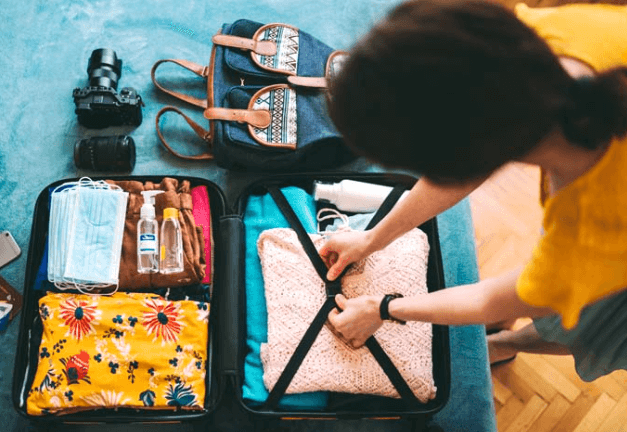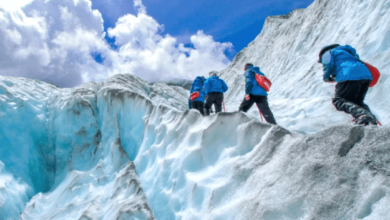The Future of Travel Post-Pandemic: Trends to Watch

Introduction
The global travel industry has undergone a seismic transformation due to the COVID-19 pandemic. From border closures and quarantine mandates to vaccine passports and hybrid work models, the travel landscape has evolved in unprecedented ways. As the world adapts to a post-pandemic reality, new trends are shaping the future of travel. These emerging patterns reflect changes in consumer behavior, technological advancements, and a heightened focus on safety and sustainability.
Rise of Domestic and Regional Travel
One of the most prominent trends in the post-pandemic era is the rise of domestic and regional travel. With international travel restrictions still varying by country, many travelers are rediscovering the charm of destinations closer to home. Road trips, staycations, and weekend getaways have become increasingly popular as people seek safe and convenient options for relaxation. Travelers are exploring hidden gems within their own countries, contributing to the revival of local tourism economies.
Increased Focus on Health and Safety
The pandemic has heightened awareness of hygiene and wellness, leading to new protocols across the travel industry. Airlines, hotels, and cruise lines have implemented rigorous cleaning standards, contactless check-ins, and social distancing measures to ensure the safety of passengers and guests. Travel insurance policies now include coverage for COVID-19-related disruptions, providing added peace of mind for travelers. This focus on health is also driving interest in wellness tourism, with travelers seeking retreats and experiences that prioritize physical and mental well-being.
The Role of Technology in Travel
Technology continues to play a transformative role in the travel industry, enabling seamless and personalized experiences. Digital health passports, which verify vaccination status and test results, are becoming essential for international travel. Biometric technologies like facial recognition and contactless payments are streamlining airport security and boarding processes, reducing physical contact and wait times. Virtual reality (VR) and augmented reality (AR) are also gaining traction, allowing travelers to preview destinations or enjoy immersive virtual experiences from the comfort of their homes.
Sustainability Takes Center Stage
Sustainability has emerged as a cornerstone of post-pandemic travel. As travelers become more conscious of their environmental impact, there is a growing demand for eco-friendly options. Airlines are investing in sustainable aviation fuel, while hotels are adopting green practices such as energy-efficient designs, plastic reduction initiatives, and local sourcing. Travelers are increasingly drawn to destinations and experiences that support conservation efforts and benefit local communities. This shift towards responsible tourism reflects a collective commitment to preserving the planet for future generations.
The Emergence of Slow Travel
The concept of “slow travel” is gaining momentum as people prioritize meaningful and immersive experiences over rushed itineraries. Rather than hopping from one destination to another, travelers are spending more time in a single location to fully immerse themselves in its culture, history, and way of life. This approach aligns with the desire for deeper connections and authentic experiences. Activities like cooking classes, cultural tours, and volunteer opportunities are becoming popular among travelers seeking enrichment and engagement.
Workcations and the Hybrid Work Model
The hybrid work model, which combines remote work with in-office attendance, has given rise to a new trend known as “workcations.” Professionals are taking advantage of flexible work arrangements to combine work and leisure by traveling to scenic destinations while maintaining productivity. Hotels and resorts are catering to this demographic by offering work-friendly amenities such as high-speed internet, private workspaces, and extended stay packages. This trend blurs the lines between work and leisure, enabling people to embrace a more balanced and fulfilling lifestyle.
Demand for Personalization in Travel
Personalization is becoming a defining feature of the travel experience in the post-pandemic era. Travelers are seeking customized itineraries that cater to their unique preferences and needs. Travel companies are using data analytics and artificial intelligence to offer tailored recommendations and services. Whether it’s suggesting off-the-beaten-path attractions, curating dietary-specific dining options, or arranging unique activities, personalization enhances satisfaction and creates lasting memories for travelers.
Transforming Group Travel
Group travel is also undergoing a transformation. While large tour groups were common before the pandemic, there is now a preference for smaller, private groups consisting of family or close friends. This trend reflects a desire for exclusivity, safety, and shared experiences with loved ones. Small group travel allows for more flexibility and customization, enabling participants to explore destinations at their own pace while maintaining a sense of intimacy and comfort.
The Resurgence of Luxury Travel
The resurgence of luxury travel is another notable trend in the post-pandemic world. After months of travel restrictions, affluent travelers are indulging in exclusive and extravagant experiences. Private jets, luxury yachts, and high-end accommodations are in high demand, as travelers seek to minimize exposure to crowds while enjoying premium services. Luxury travel providers are focusing on creating personalized, high-touch experiences that cater to the unique desires of their clientele.
Digital Nomadism Redefines Travel
Digital nomadism, a lifestyle that gained momentum during the pandemic, is reshaping the travel industry. As remote work becomes more mainstream, individuals are embracing the freedom to live and work from anywhere. Countries like Portugal, Barbados, and Estonia have introduced digital nomad visas to attract this growing demographic. Coworking spaces, long-term rental options, and community-building initiatives are becoming integral to supporting the needs of digital nomads, who contribute to local economies while enjoying a nomadic lifestyle.
Cultural Immersion and Authentic Experiences
Cultural immersion remains a key driver for travelers seeking authentic experiences. In the post-pandemic era, there is a heightened appreciation for learning about different cultures, traditions, and ways of life. Travelers are gravitating towards destinations that offer rich cultural heritage, festivals, and local craftsmanship. Culinary tourism, which allows visitors to explore regional cuisines and cooking techniques, is particularly appealing to those looking to connect with a destination through its food and flavors.
The Integration of AI and Machine Learning
The integration of artificial intelligence (AI) and machine learning is enhancing the efficiency and convenience of travel planning. Chatbots powered by AI provide instant customer support, answering queries and assisting with bookings. Predictive analytics helps travelers anticipate the best times to book flights or accommodations, saving time and money. These technologies are making travel more accessible and user-friendly, empowering individuals to plan their trips with confidence and ease.
Inclusivity and Accessibility in Travel
The travel industry is also embracing inclusivity and accessibility, ensuring that travel experiences are available to people of all abilities. From wheelchair-accessible accommodations and attractions to sensory-friendly experiences, the focus on inclusivity is transforming the travel landscape. Organizations are collaborating with advocacy groups to create barrier-free environments that welcome everyone, regardless of physical or cognitive abilities.
Conclusion
The post-pandemic future of travel is marked by resilience, innovation, and a renewed emphasis on human connection. Travelers are redefining their priorities, seeking experiences that align with their values and aspirations. As the industry adapts to changing demands, it is poised to offer more meaningful, sustainable, and personalized journeys. With technology and creativity driving these changes, the future of travel holds exciting possibilities for both travelers and the industry as a whole.




